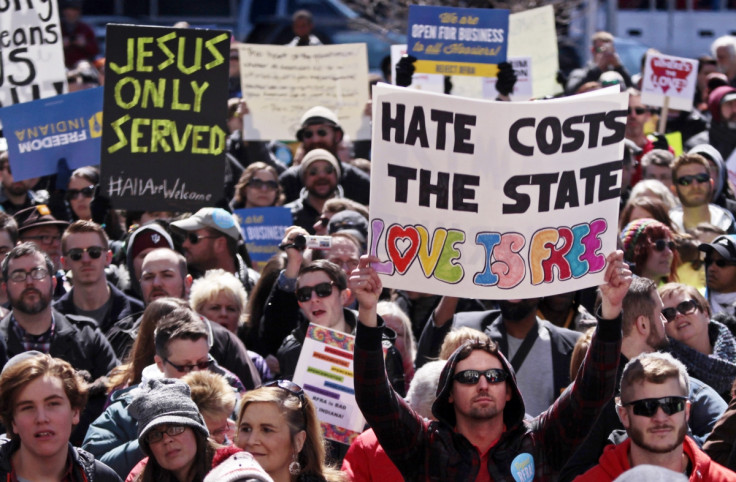Georgia state legislature passes religious freedom bill criticised for being anti-gay

Georgia's state legislature passed a religious freedom bill on 16 March that has been criticised by opponents as being discriminatory against same-sex couples. The bill, referred to as the Religious Liberty Bill, managed to move ahead in an 11th hour vote just ahead of the session's close. The bill now heads to Georgia's Republican Governor Nathan Deal, who must sign it for it to become law.
According to Reuters, Governor Deal has claimed he will not sign any bill that permits discrimination, but his office did not clarify whether he was referring to this particular bill. The latest religious freedom bill was reconfigured several times after legislators were criticised that earlier versions were too strict.
The Religious Liberty Bill rules that no religious pastor can be forced to perform a same-sex wedding and also allows faith-based organisations, such as churches and other religious institutions, to reject holding events for people or groups they are against. Reuters noted that the bill also establishes that these faith-based organisations cannot be forced to employ or retain an employee whose beliefs are against that of the group's.
"The decision by the legislature today was to make an egregious and discriminatory bill even worse," the Human Rights Campaign said in a statement. "It's appalling that anti-equality extremists in the legislature are trying to ignore the will of the people of Georgia."
Supporters of the bill, however, disagree. Mike Griffin, a spokesman for the Georgia Baptist Convention, told Reuters that the current bill did not grant all the concession they were hoping for, but added: "We feel we've advanced our protection of our First Amendment Right to religious freedom." Griffin said, "Our rights of religious liberty don't end inside the four walls of a church."
Over 300 large corporations and small businesses, including Coca Cola and Microsoft, signed a petition urging state legislators to get rid of the bill. According to CBS News, some company are even considering moving out of the state because of the bill.
Kelvin Williams, founder of telecommunications firm 373K, told CBS News that he is concerned the bill would make it difficult to recruit workers. "For the past year we've been building a global carrier network. We have to start hiring more," the openly gay businessman said. "I can't always find the perfect person in Georgia. I might have to reach out across the world. Would I want to move to Georgia if someone else offered me a job after this?
Williams said his staff supported his decision to uproot the company's headquarters. When he announced the decision on Twitter, he said several other cities and states reached out, including the governor of Delaware.
The disruption of business in states that have similar legislation has been recorded. In Indiana, the state's controversial Religious Freedom Restoration Act resulted in as much as $60m in lost revenue, according to the Visit Indy tourism group. Similar bills are also being considered in other states, including Kentucky.
© Copyright IBTimes 2025. All rights reserved.






















